Learning disability
 A learning disability is to do with the way someone's brain works. It makes it harder for someone to learn, understand or do things.
charity Mencap, in partnership with NHS England, has launched a new animation and online guides called Don’t Miss Out to raise awareness of the importance for people with a learning disability to be on their GP’s
learning disability register
A learning disability is to do with the way someone's brain works. It makes it harder for someone to learn, understand or do things.
charity Mencap, in partnership with NHS England, has launched a new animation and online guides called Don’t Miss Out to raise awareness of the importance for people with a learning disability to be on their GP’s
learning disability register
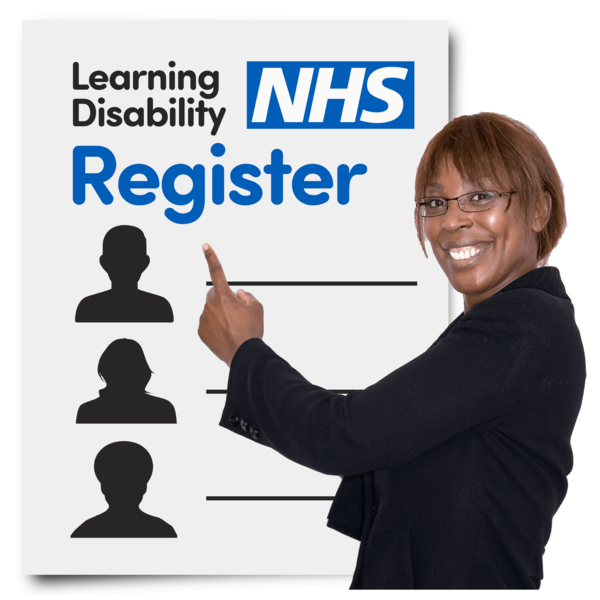 The learning disability register is a list of people with a learning disability that the doctor’s surgery looks after.
.
The learning disability register is a list of people with a learning disability that the doctor’s surgery looks after.
.
Just 23% of people with a learning disability are registered as having a learning disability with their GP [1] and just 44% receive an
Annual Health Check
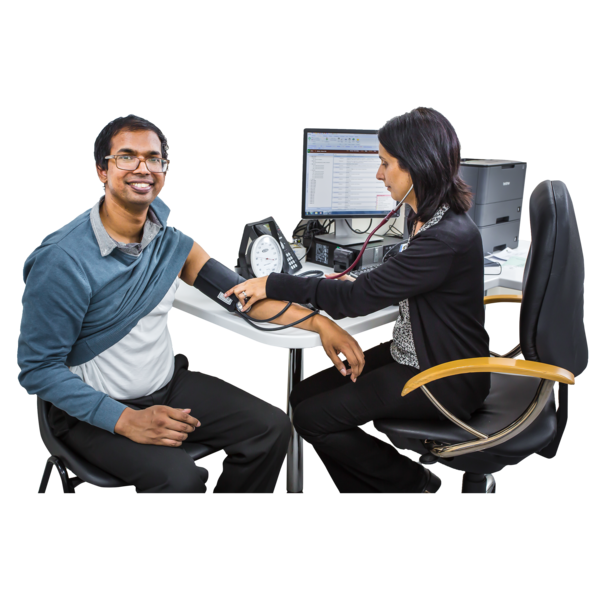 An annual
health check
An annual
health check
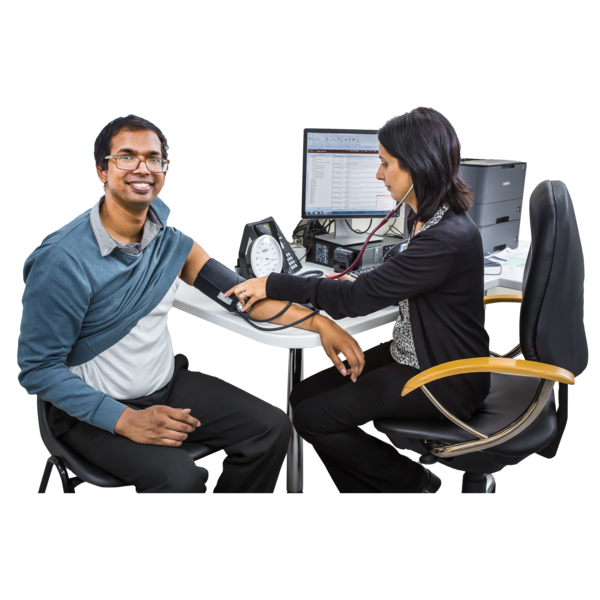 A health check is when you see a nurse or doctor so they can help you to stay well.
is when you see a nurse or doctor once a year so they can help you stay well. Everyone aged 14 or over who has a learning disability should be invited for an annual health check.
[2]. This is despite well documented evidence of the health inequalities experienced by people with a learning disability, with 1,200 avoidable deaths every year [3].
A health check is when you see a nurse or doctor so they can help you to stay well.
is when you see a nurse or doctor once a year so they can help you stay well. Everyone aged 14 or over who has a learning disability should be invited for an annual health check.
[2]. This is despite well documented evidence of the health inequalities experienced by people with a learning disability, with 1,200 avoidable deaths every year [3].
If people with a learning disability tell their GP’s they have a learning disability they are entitled to extra help. This can include:
- extra time for appointments
-
easy Read
 Easy Read is a way of making written information easier to understand. Pictures are usually added next to the writing.
information that is
accessible
Easy Read is a way of making written information easier to understand. Pictures are usually added next to the writing.
information that is
accessible
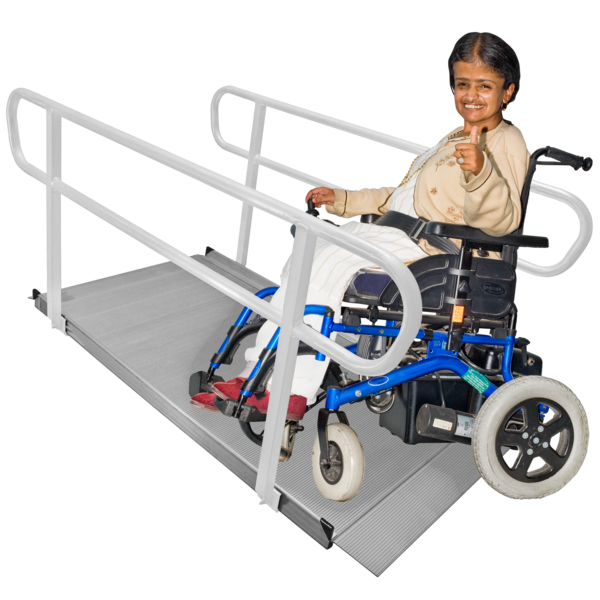 Accessible means something is easy for people to use or join in with. For example: Accessible writing means the writing is easy to read and understand.
Accessible means something is easy for people to use or join in with. For example: Accessible writing means the writing is easy to read and understand.
- annual health checks that help to maintain health, detect conditions and illnesses and help GPs to understand how to provide better care to patients with a learning disability.
For more information visit www.mencap.org.uk/dontmissout.
Youssef Abidat has a learning disability. He said:
My GP phones me to remind me about my health check, because sometimes I forget. I’m happy with my health centre. I didn’t realise I was low on vitamin B12 until I had my Annual Health Check, so now I take vitamins to correct that. If I didn’t have the check I may have been ill and not realised it.
Rachel Ashcroft, Strategic Development
Manager
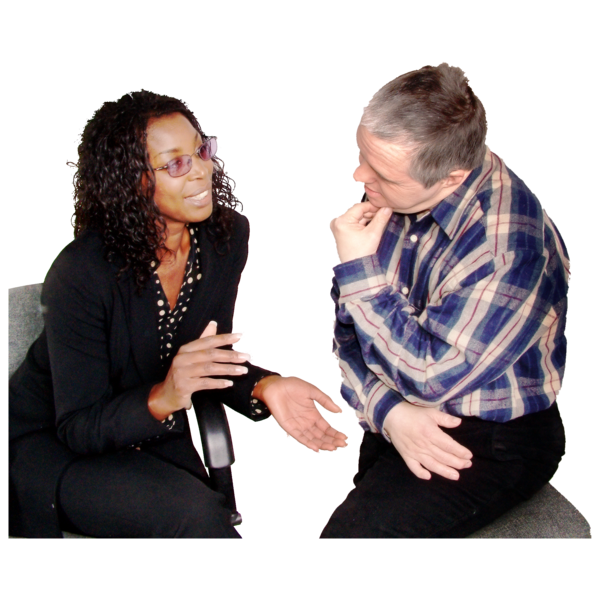 A manager is a boss at work. They tell you what you need to do and give you support if you need it.
for Health at learning disability charity Mencap, said:
A manager is a boss at work. They tell you what you need to do and give you support if you need it.
for Health at learning disability charity Mencap, said:
Visiting the GP can be incredibly difficult if you have a learning disability. Making appointments, understanding what the doctor is saying and explaining how you feel can be really hard. Being on the GP’s learning disability register can ensure healthcare is much more accessible and can result in better health outcomes for people with a learning disability.
There are 1,200 avoidable deaths of people with a learning disability every year due to the health inequalities that people with a learning disability face. Access to better support, more time and annual health checks could play a crucial role in improving patient-doctor relationships
Relationships are about the people in your life. You might have different types of relationships like friendships, family relationships, or a boyfriend or girlfriend. and ensuring that people with a learning disability receive the healthcare and treatment they need.
Dr Matt Hoghton, GP at Clevedon Medical Group and North Somerset CCG learning disability clinical lead, said:
Doing the Annual Health Checks allows me to build a long-term, trusting relationship with patients who have a learning disability. This means I can do the necessary examinations, such as blood tests. At the same time, I learn more about the person and can make reasonable adjustments to their care.
-ENDS-
For further information or to arrange interviews, please contact the Mencap press office on 020 7696 5414 or media@mencap.org.uk or for out of hours 07770 656 659.
Notes to editors
Don’t Miss Out is part of a wider piece of work NHS England are doing to increase the numbers of people with a learning disability accessing services and support by joining the GP learning disability register and getting an Annual Health Check.
[1] Learning Disabilities Observatory - People with learning disabilities in England 2015: Main report - https://assets.publishing.service.gov.uk/government/uploads/system/uploads/attachment_data/file/613182/PWLDIE_2015_main_report_NB090517.pdf
[2] Learning Disability Profiles, Health - https://fingertips.phe.org.uk/profile/learning-disabilities/data#page/0/gid/1938132703/pat/6/par/E12000004/ati/102/are/E06000015
[3] Mencap research in to 1,200 avoidable deaths per year - https://www.mencap.org.uk/press-release/mencap-research-scandal-avoidable-death-1200-people-learning-disability-die
About Mencap
There are 1.5 million people with a learning disability in the UK. Mencap works to support people with a learning disability, their families and carers by fighting to change laws, improve services and access to
education
 Education is when you learn things. When you fill in a form to get a job, education means you write where you went to school, college or university.
,
employment
Education is when you learn things. When you fill in a form to get a job, education means you write where you went to school, college or university.
,
employment
 Employment means having a job.
and
leisure
Employment means having a job.
and
leisure
 Leisure is when you have time to do things you enjoy like playing sports or going to the pub.
facilities. Mencap supports thousands of people with a learning disability to live their lives the way they want.
Leisure is when you have time to do things you enjoy like playing sports or going to the pub.
facilities. Mencap supports thousands of people with a learning disability to live their lives the way they want.
For advice and information about learning disability and Mencap services in your area, contact Mencap Direct on 0808 808 1111 (9am-5pm, Monday-Friday) or email help@mencap.org.uk.
What is a learning disability?
A learning disability is a reduced intellectual ability which can cause problems with everyday tasks – for example shopping and cooking, or travelling to new places – which affects someone for their whole life.
People with a learning disability can take longer to learn new things and may need support to develop new skills, understand difficult information and engage with other people. The level of support someone needs is different with every individual. For example, someone with a severe learning disability might need much more support with daily tasks than someone with a mild learning disability.
Learning disability is not a mental illness or a learning difficulty. Very often the term ‘learning difficulty’ is wrongly used interchangeably with ‘learning disability’.